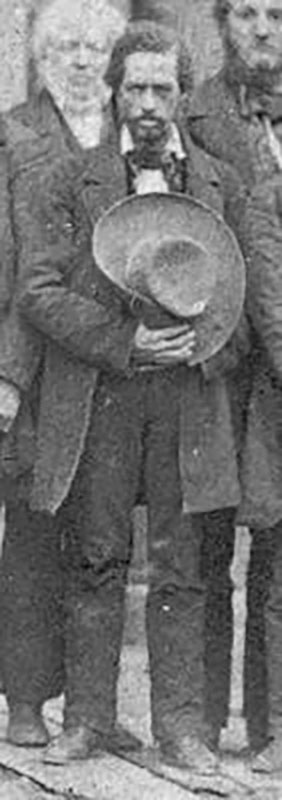Charles Henry Langston, the grandfather of poet Langston Hughes, was born a free man on a Virginia plantation in 1817 to Captain Ralph Quarles and Lucy Jane Langston, Quarles’ mulatto slave. He had two brothers, John Mercer (who would become a Virginia Congressman in 1888) and Gideon. After the death of his father in 1834, Charles inherited a large part of his father’s estate, and he went to be educated at Oberlin College in 1842 and 1843.
The liberation of the accused fugitive slave John Price in 1858 helped Charles Langston emerge as a prominent public figure and champion for the cause of anti-slavery. In a bold act of defiance, Charles led a group of white and black abolitionists to rescue John Price from Federal authorities after he was arrested for allegedly violating the fugitive slave act. Charles Langston was tried and convicted for his part in this event. Langston’s conviction proved so unpopular in the area that he was freed before serving his full sentence. He would later use this experience to argue that if black people are not able to serve on juries, then they are not tried by their peers.
Charles Langston moved to Kansas early in the Civil War and was instrumental in the state campaign for black suffrage from 1863 to 1867. He helped lead a black sponsored convention in Leavenworth, Kansas which petitioned the state legislature for the right to vote in 1863. Although the effort failed, Langston lobbied on the behalf of this cause to radical Republican gubernatorial nominee Samuel Crawford. After Crawford was elected he suggested a referendum to the legislature to strike the word ‘white’ from the voting qualification in Kansas. The referendum was defeated by statewide popular vote in 1867. Black Kansans received the right to vote in 1870 with the passage of the 15th Amendment. Charles Henry Langston died in 1892.

